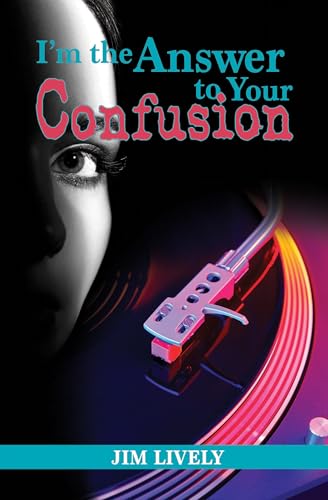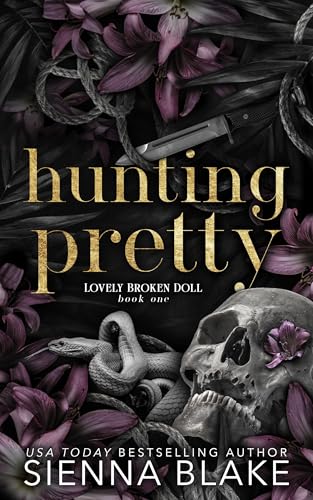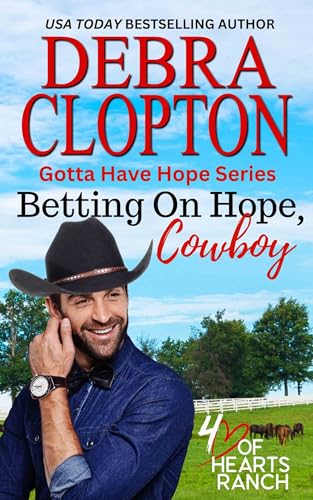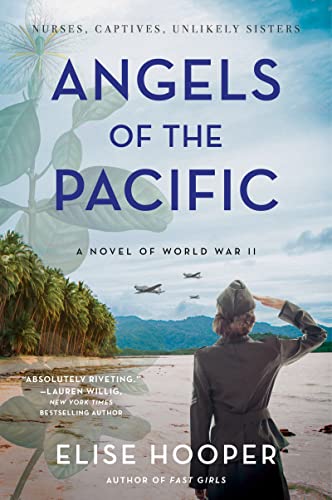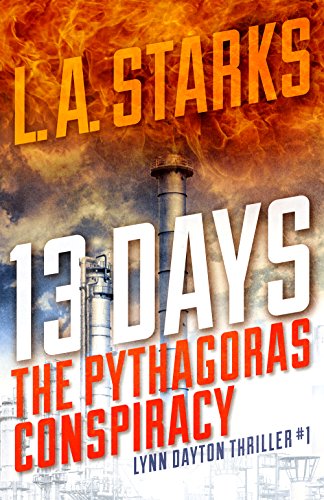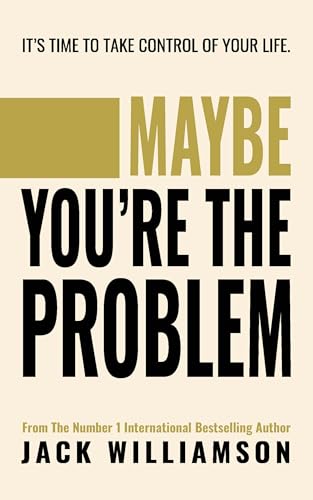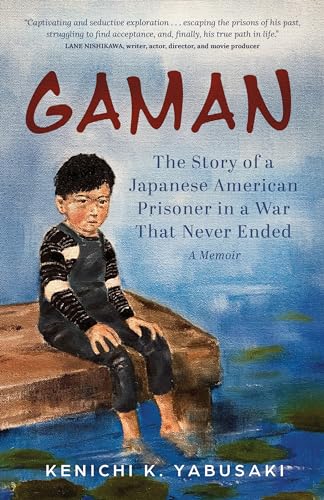On Friday we announced that M.D. Grayson’s Angel Dance is our Thriller of the Week and the sponsor of thousands of great bargains in the thriller, mystery, and suspense categories: over 200 free titles, over 600 quality 99-centers, and thousands more that you can read for free through the Kindle Lending Library if you have Amazon Prime!
Now we’re back to offer our weekly free Thriller excerpt:
4.3 stars – 45 Reviews
Or currently FREE for Amazon Prime Members Via the Kindle Lending Library
Text-to-Speech and Lending: Enabled
Here’s the set-up:
From M.D. Grayson comes the action packed Danny Logan debut mystery, Angel Dance.
Praise for Angel Dance…
“The intensity continues to build. Just when you think you have it solved, Grayson throws you a wild curve. It was an excellent read. I highly recommend it.”- Mack McCormick Author, Terrorists at the Bus Stop
“Angel Dance was so much fun to read that I completed it in one day in Cape Cod on vacation. In fact, I resented anyone who interrupted my reading time!”- Bella Luna Book Reviewer
And here, for your reading pleasure, is our free excerpt:
Chapter 1
Seattle is spectacular in the summer. I think it’s God’s way of paying back Seattleites for making us endure the long, drawn-out Pacific Northwest winters. From late October to early June, the color palette seems to meld into a gray-tone monoscape. The sky is gray. The water’s gray. Even the trees look gray. The later into the season, the grayer and the more monotone it seems to get. It’s almost always cloudy in the winter, but it usually doesn’t rain hard. Instead, it drizzles continuously—tiny misty raindrops. And it does so for days on end, pretty much nonstop. It’s not uncommon for the airport to record thirty days of continuous rain—a performance that begins to approach biblical standards. Then, just as people are about to grow moss on their feet or go insane (or both), summer finally shows up.
This generally happens around the middle of June when the “June Gloom” gives way to clear skies. The sun comes out in all its glory for four solid months. The gray landscape is shoved to the back of people’s minds, where it’s quickly forgotten. Seattleites hang up their Gore-Tex jackets and break out their shorts and T-shirts. Temperatures climb into the low to mid-seventies in the afternoons. Super-saturated greens of verdant forests set against brilliant blue skies and deep-blue sparkling waters touch the eyes in every direction. The contrast is so striking that tourists—sometimes even locals—stop dead in their tracks to admire the view. Summertime visitors marvel at the stunning scene and say, “It’s beautiful here! There’s no rain—what’s all this talk about rain? We should move here!” Some do. Then winter returns. Oops. Gotcha.
It’s hard to imagine anything bad happening in the paradise that is Seattle in the summer, but of course it does. There’s no slow time of year in my private investigation business. People take advantage of each other pretty much year ’round. Husbands cheat on wives. Wives cheat on husbands. Employees rip off employers. People skip bail, or sometimes just disappear. Here at Logan Private Investigations, we stay busy every month of the year.
Which explains why I was sitting on the balcony of my office on Lake Union on a fine Tuesday afternoon on the sixteenth of August, trying to finish a surveillance wrap-up report on my laptop. A client of ours who owns an electronics parts distribution company kept coming up short in her inventory audits. After bringing in her auditors and back-checking her internal control procedures, she finally deduced that one or more of her employees—most likely dock employees—must be stealing from the business. But she couldn’t prove it. Our client asked us to place the dock under video surveillance. That’s one of our specialties, so we agreed. We took our plain white surveillance van, stuck our “Ryan’s Quality Plumbing” vinyl to the sides and parked it across the street from her docks late at night. Three days later, we had the evidence to prove she was right. Now, I was trying to finish the wrap-up report.
Truth be told, I wasn’t making much headway. I kept getting distracted by a Laser-class sailboat regatta taking place on the lake directly in front of me. The windward mark was just forty yards from my chair, and each time the fleet of little boats approached the mark in a bunch, I noticed a very attractive blonde in a gray Laser with Volvo 116223 painted on its sail. She was fighting hard, holding her position near the front of the pack. Her little boat heeled precariously, causing her to hike way out. Clearly, she was in it to win. Though I can’t say if she won or not, I know for certain she was a very effective distraction from the report staring up at me from my desk.
This bout of three-steps-forward-two-steps-back mind-wandering came to a sobering halt when my associate, Antoinette Blair, buzzed in on the intercom.
“Danny, there’s a man named Robbie Fiore here to see you.”
Robbie Fiore—now there was a name from the past.
“Thanks, Toni,” I answered. “Do me a favor and bring him on back to my office, would you?”
~~~~
I grew up in Seattle and knew the Fiore family. I graduated from high school with Roberto. Robbie and I ran with different crowds, but we were friendly. In fact, we were both on the track team—I ran the mile; Robbie was a pole vaulter. Through him, I knew his kid sister Gina.
Gina was two years younger than us. She’d show up at the track meets with her friends to root for Robbie. She was one of a kind. And short—maybe five two with a fiery personality, almost to the point of being cocky. Beautiful: thick, dark hair and a knockout figure, even in high school. Unfairly beautiful, with brains to match. I’d see her in the halls at school, surrounded by girlfriends and guys with stars in their eyes. She was the center of attention, to be sure. Even though I was older than she was, she intimidated the hell out of me in those days. I’d have loved to ask her out on a date, but in high school I could never find the nerve.
Now, Gina was missing. Gone. No trace. The story had been front page in the Seattle Times yesterday and this morning. Even the morning edition of the national news had picked up the story and started running with it. “Local Business Heiress Vanishes.”
Her picture was all over the local television news. According to the reports, Gina had not been seen since last Thursday. No clues, no ransom demand—no nothing. The police effort had started slowly, as is typical in an adult missing person case, but the press reports indicated that this was changing now. Gina’s lifestyle didn’t seem consistent with someone who’d simply disappear. The papers said her purse, her driver’s license and credit cards, and all her personal effects were found locked in her apartment. Her car was parked in its normal space. It certainly sounded unusual at the least. Maybe even suspicious.
When I first saw the newspaper accounts, I’d thought of calling the family to offer my services, but I hadn’t. I’m not sure why. Finding missing persons is one of the things we do, but I don’t know, maybe it was because the timing didn’t seem right yet. The police were starting to get fired up over the case, and they probably wouldn’t welcome my uninvited help. I couldn’t figure out how to bring it up with the family—I didn’t want to just barge in. Anyway, I hadn’t made the call.
~~~~
“Robbie,” I said, walking to meet him as Toni brought him into my office. We shook hands. “Good to see you.”
“Hi, Danny. It’s been a long time,” Robbie said.
“It has. I’m so sorry to hear about Gina.”
“Thanks. I guess you saw the news—seems everyone has. It’s not too hard to figure out why I’m here.” His voice wavered—he was clearly scared. I’ve seen people in this situation before and I felt really bad for the guy.
“She’s gone, Danny,” he said, “and my family’s scared to death. My parents flat adore her. She’s their baby.” He paused, then added, “I swear, if anything bad’s happened to her, it’ll probably kill them.”
I nodded that I understood.
“I’m here to ask for your help,” he said. His eyes were surrounded by dark circles and looked as though they were on the verge of tearing up. He looked whipped. His normally stout, six-foot frame was bent; his shoulders hunched. There were lines that appeared to be etched into his forehead. He looked like he hadn’t slept for days.
“I understand,” I said. “I’m eager to help. Let’s talk for a few minutes about what we might be able to do.” I nodded toward Toni. “Robbie, first let me introduce Toni Blair. Toni’s an associate of mine. If we end up deciding that my firm can help your family locate Gina, Toni will be in on it with me. She’s been with me since I opened the doors here. If it’s okay with you, I’d like her to sit in with us from the start. That way, she and I can compare notes later and make sure we don’t miss anything.”
Robbie looked at Toni and nodded.
“I’m glad to meet you, Robbie,” Toni said, shaking his hand. “I’m real sorry about your sister.” There’d been no time to brief Toni on what was happening, but it really wasn’t necessary anyway. She’s one of those unusual people—the kind that you never see studying, but they always seem to know everything that’s going on around them. More than that, I’ve noticed she has the unique talent of being able to put people at ease quickly. Her sincerity is genuine and shines right through. People respond well to her, as Robbie did now.
“Thanks,” he said, his face brightening a little. “I appreciate that.”
I directed Toni and Robbie to the little conference table in my office. “Let’s have a seat, and you can tell us what’s happened.” They sat down while I grabbed a notepad for me and one for Toni before joining them.
“Robbie,” I said, “I should start by saying we don’t know anything—only what we’ve seen on the news and in the paper. For a number of reasons, that’s not always very reliable.” At least at first, the press tends to report what the police feed them. Oftentimes, the police hold things back for tactical reasons. We needed all the information. I continued, “We’re going to take notes while you start at the beginning and tell us everything—everything you know—even the little stuff.”
He nodded. “Okay.” He looked at the water outside for a few moments while he seemed to gather his thoughts. He cleared his voice before starting.
“Gina works for the company—that is, my dad’s company: Pacific Wine and Spirits. She and I both work there. This past Friday, she didn’t show up for work.”
Toni and I both took notes as Robbie spoke.
“We called her and left messages at her condo and on her cell. We got no answer, no calls back. I sent her e-mails and text messages—again no answer. This isn’t like her—Gina never misses work. She won’t even be late for an appointment unless she calls first. By Friday afternoon, we were really starting to get worried. Cindy Dunlap, our HR director, and I decided to go to her apartment and check it out.”
“You have a key then?” I asked.
“Yeah. Gina and I have always exchanged front door keys and keys to each other’s cars so we can help out in case the other is out of town or something.”
“Or in case you lock yourself out,” Toni said.
“Right. I opened her condo and went inside and saw that she wasn’t there. At first, I was relieved. Then I noticed her purse was on the counter and her keys, too. When I saw the keys, I went back outside and saw that her car was in its parking space. I hadn’t noticed it on the way in.”
Toni raised her hand suddenly. “Let me interrupt you for a second, Robbie,” she said. “Before you get too far into what’s happened over the past few days—I apologize—I should have been more clear and asked a few background questions first. I need you to back up so that we can get a few basic things out of the way.”
“Oh, sorry,” he said.
“No, it’s not you,” Toni said, “but I don’t know anything about Gina—only what I’ve seen on TV or read in the paper in the last day or so. For instance, I don’t even know her full name or how old she is.”
“Oh,” Robbie said. “I see. Her full name is Angelina Theresa Fiore. She’s twenty-seven, born on June 14, 1984.”
“Her physical description?”
“She’s five feet two inches, about 105 pounds. Long, dark hair.”
“Any distinguishing marks? Tattoos, piercings—that sort of thing?”
“No, nothing.”
“Married?”
“No, never.”
“Home address?”
“Three twenty-seven West Olympic Place, unit 304, here in Seattle,” Robbie said.
“That’s right near where my dad lives,” I said, thinking of the house where I grew up.
“Yeah, I guess we all end up coming back to Queen Anne sooner or later,” Robbie said.
Toni scribbled furiously on her notepad. “How do you two guys know each other?”
“High school,” Robbie said. “Danny and I graduated from Ballard High in 2000. Gina was two years behind us.”
“And church, too,” I said.
“That’s right,” Robbie agreed. “Both our families attend St. Joseph’s on Capitol Hill.”
Toni nodded. “I see. Did Gina go to college here?”
“Yes, she graduated from U-Dub with a degree in business finance in—I think—2006.”
“That sounds right,” I added. “I went out with Gina for a bit in late 2006. She’d just recently graduated then.”
Toni glanced up at me for an instant, then looked back at her notes. She wrote for a minute without speaking. The room grew quiet.
“Anything else on the background?” I asked her.
She finished writing and flipped back a strand of hair that had fallen across her face before she looked up. “No, that’s good. That helps for now,” she said. “Okay, Robbie. Back to current time. You’re in Gina’s condo. You’ve noticed that her purse and keys are still there and her car, too.”
“Yes. After I saw all of Gina’s stuff—her purse and her keys—in there, that’s when I started to get worried. She wouldn’t go anywhere without telling us, and she certainly wouldn’t go anywhere without her purse or her keys. So I called the police to report her missing.”
“Did the police send someone out?” I asked. The notion that you have to wait forty-eight or seventy-two hours before filing a missing person report with the police is an old wives’ tale. On the other hand, just because you filed a report, the police wouldn’t necessarily do anything right away unless there was suspicion of foul play, or unless the missing person suffered from some sort of mental condition that could put him- or herself in danger.
“They did. They were very prompt, as a matter of fact. They sent two people—a detective and a patrol officer. They looked around her condo a little and filled out a missing person report. They told us that they’d file the report, but that there wasn’t much that they’d be able to do, at least not initially. I went straight over to my parents’ home right afterward and told them what was happening.” Robbie paused and looked around, then said, “Would I be able to get a bottled water from you?”
“Of course,” I said. I hopped up and grabbed him one off the credenza.
He took a long drink and then continued. “They pretty much freaked out. My dad called Gary Frohming—our family lawyer. Gary must have had some pull with some higher-ups at the police department because later that same afternoon, the police called back. They sent out two different guys. They interviewed us and took another report.”
Never hurts to have friends in high places. I knew Gina’s dad, Angelo Fiore. He was “plugged-in” socially and politically. If anyone had friends with pull, it would be Angelo.
“We’re still talking about last Friday, August 12?” Toni said.
“Yes.”
“Okay. Do you remember who these two guys were?” I asked. “If we’re able to help out and take this case on, we’ll have to coordinate with them.”
“I do,” Robbie said. “I have their cards.” He reached into his jacket, pulled out two business cards and handed them to me.
“Dwayne Brown,” I said, reading the names off the cards. “I know Dwayne Brown pretty well. I don’t think I’ve met his partner, Symanski, but I’ve worked with Dwayne in the past.”
“He’s the guy that was at our open house?” Toni asked. “The one you worked with while you were in the army?”
“Yeah,” I said. I was a U.S. Army CID Special Agent at Fort Lewis with the sixth MP-CID Group for three years from 2005 to 2008. Dwayne was with the Seattle PD. We worked on three or four cases together. “Dwayne’s a good guy.”
“He’ll cooperate with us?” Toni asked.
“Most likely,” I said. “Unless he’s being told not to by his bosses.”
“Okay,” Toni said, focusing back on Robbie. “So Robbie, you said the police came out—where’d they interview you?”
“The second time, they talked to all of us at my parents’ home.”
“We’ll talk to them separately, but did your parents have any information they were able to add?”
“No, not really. My mom said that Gina was supposed to have come over that Friday night. Dad didn’t know anything at all.”
“After the interview, did the police visit Gina’s condo and do any sort of investigation there?”
“Yes. The next day—last Saturday—they sent a whole team of people out. They photographed everything and took some of Gina’s things—pictures and bathroom stuff, mostly. They collected some fibers from the carpet. Oh, and they took a cup from the sink. On the way out, though, Detective Brown told me that there didn’t initially appear to be anything unusual or suspicious about the condo—aside from the fact that Gina wasn’t in it and all of her personal stuff was.”
I nodded. “Okay,” I said. “Sounds like a CSI investigation. I’ll follow up with him about that.”
“As a matter of fact, their jackets said ‘CSI’” Robbie said.
I nodded.
“I have a question,” he said.
“Shoot.”
“The CSI people took her hairbrush and put it in an evidence bag. Why would they do that?”
I looked at him. “It’s standard procedure. They’re collecting a DNA sample. It’s required by Washington law for identification in missing person cases.”
“Identification?” he said. “Why don’t they just—” He stopped and then said, “I see. It’s so that in case they find a body . . .”
“That’s right. In case they find a body, they can make a positive ID using a DNA sample, even if the body is otherwise unrecognizable. Don’t try to read anything into this—it’s standard procedure and good police work.”
He was silent for a second, then he said, “I guess it’s hard not to read anything into it when you’re talking about collecting a DNA sample to potentially identify the body of your sister.”
“I understand,” I said, “but I honestly don’t think it’s going to come to that.” I looked him in the eyes. “Look, Robbie, I’ve worked through several adult missing person cases over the years. And I know you’re probably scared to death, and you have a right to be. But I need to tell you, the odds are very good that Gina’s fine. She’ll either come waltzing home all by herself or the police, maybe with our help, will find her and she’ll be okay. It may be hard to think that now, but that’s probably what’s going to happen. Understand?”
He nodded. I continued. “The hard part for you and your family’s going to be dealing with the unknown, and particularly, dealing with the wait—the wait while the process plays out.”
Robbie nodded again.
“Because of this, you guys are going to face challenges and scenarios you’re not used to. As you go through them in your minds, these possibilities will run from simply unpleasant to downright horrible—the worst things that could ever happen to a family. You’d never have to consider these things in your normal, day-to-day lives. We’ll talk about these things—no sense locking them in a closet and then avoiding them altogether. As a matter of fact, when the time comes, we should talk about them so that you can develop rationally based expectations. Part of what we can offer is a little counseling—we can help provide you with some logic and context to all the possibilities. When we do this, you’ll see that the reality is that the odds of these really bad things happening to Gina are very low, even though you’re probably scared shitless now.”
He nodded. “We are—scared, I mean.”
I nodded. “That’s understandable and to be expected. For now, though, my advice to you is this: don’t dwell on the unpleasant possibilities. You’ll just scare yourself even more. And if you are scared, then your parents will be scared to death—scared at a time when they need your strength the most. Make sense?”
He nodded.
“Be strong for your parents; they’ll need your support. Take my advice. Bottle up the fears so you can channel your mental energy into something productive—liking helping to find Gina.”
He nodded. “I appreciate that, Danny.”
“No problem. But while we’re on this line of touchy questions, have the police said anything about ransom demands?” I asked. “Have they set up a recording system or some sort of monitoring system on your phones? I’m assuming there’s been no contact at all by anyone with anything to do with Gina regarding any sort of ransom?”
“Yes, they are monitoring my mom and dad’s phone. They set it up Saturday. But you’re right—we haven’t heard a word from anyone that would make us believe she’s been kidnapped,” Robbie said. “No calls. No letters. No e-mails.”
“Good,” I continued. “Now back to our questions. Let’s shift gears and talk about Gina and her behavioral traits. I know Gina from high school and from our brief time together in 2006, but this doesn’t amount to much—especially now, five years later. What can you tell us about her?”
“Well,” Robbie said, “she’s supersmart. She works hard. She’s outgoing. She’s usually happy, although she does have a temper. She’s focused. She’s a great manager at work.” This meshed perfectly with the Gina I remembered. It didn’t sound like she’d changed at all.
“Question,” Toni said. “When you say ‘usually happy,’ how had she been acting for the few weeks before last Thursday?”
“Maybe a little different,” Robbie said. He thought for a few seconds, then said, “I wouldn’t call it unhappy. She never seemed unhappy. If anything, I might call it preoccupied. Like when you have a big project at work and it demands all your attention.”
“Was there anything going on at work that would have caused her to be preoccupied?” Toni asked.
“That’s the thing. There’s nothing. It’s a pretty routine time for us. No expansions, no new distributor lines, nothing.”
“Business is good?”
“Business is very good,” Robbie answered. “Seems the worse the economy gets, the more people want to drink. Since Gina took over the finance department five years ago, our profitability’s gone through the roof.”
This made sense. I’d have been surprised if she’d have been anything other than an excellent business manager. I said, “So she didn’t mention anything at all that might have caused her to be preoccupied?”
“No—at least, not to me.”
“How often do you speak to your sister?” Toni asked.
“She heads the finance department; I head operations. We work in different ends of the same building. We’d talk about business every couple of days, sometimes more often. We had weekly staff meetings with all the department heads. And we’d meet at mom and dad’s place for lunch sometimes, usually on Sundays.”
We scribbled on our notepads, trying to keep up. After a moment, Toni said, “Okay. Let’s change topics again. Gina has no history of just up and disappearing? Never done this before?”
“Never,” Robbie said.
“Okay,” Toni continued. “I don’t mean to be indelicate, but is Gina straight or homosexual?”
Robbie looked surprised. “I think she’s straight,” he said.
“How about boyfriends or girlfriends?”
Robbie shook his head. “Well, first off, I don’t know of any boyfriends. Certainly nobody she brought home to meet the family. But that doesn’t mean she didn’t have boyfriends that I don’t know about. She may have—she’d probably not have told me unless she thought I needed to know.”
That was a pretty good summary of the Gina I thought I knew: she’d tell you if she thought you needed to know. She’d probably not tell you just to share information, like girlfriend-to-girlfriend chitchat.
“As to girlfriends,” he continued, “I think she was friendly with a couple of the girls in the finance and accounting department. Those girls would be good for you to talk to—they probably know more about Gina’s social life than I do.”
“Okay,” Toni said. “Does she use drugs? Any problems with alcohol?”
“As far as I know, she’s never used drugs. She’ll have a social drink or a glass of wine, but she’s not an alcoholic or anything like that.”
“Good,” Toni said. She wrote in her notebook. “How about any sort of personal problems? Any history of mental illness? Depression? Anything like that?”
“No mental illness. No personal problems I’m aware of.”
“Do you think she might be suicidal at all? Has she ever mentioned suicide?”
“Never.”
“Okay. Can you get us some recent photos?”
“Yeah. Mom’s got a bunch.”
“Good.”
I spent a minute reviewing my notes, then said, “Robbie, if we’re able to go to work on the case we’ll need a complete list of people from your organization that you think we should talk to—people who work with Gina or even just know her.”
“Okay,” he said, staring at the wall, concentrating intently on something.
“And—” I started to say when he interrupted me.
“Wait a second,” he said, “I made a mistake.”
“What’s that?” Toni asked, looking up from her notepad.
“Of course there was one guy that Gina brought home to meet my parents.”
My upper body tensed.
“Who?” Toni asked. “Do you have a name for this guy?”
“Yeah,” Robbie said. He turned to me. “It was you.”
~~~~
Toni looked at me, her mouth partly open, questions in her eyes. After a moment she recovered and said, “Danny? Anything you want to add?”
“Give me a second.”
I pictured Gina in my mind the way I remembered her—laughing, witty, happy, on top of the world.
I thought about it and figured that, in front of Robbie, I didn’t know how to say that I’d had a secret crush on Gina probably since the first time I saw her in high school. She was magnetic—everyone was attracted to her.
I didn’t know how to say that I watched her in school for two years and wished that she was somehow as attracted to me as I was to her.
I didn’t know how to say that after high school, I dealt with this by classifying it as a silly boyhood crush. That is, until I bumped into Gina in late 2006 and all the old feelings came back again. This time, at least, I’d grown up enough to find the guts to ask her out. To my never-ending joyous surprise, she’d said yes.
I didn’t know how to say that I spent three of the best weeks of my life with Gina in November of 2006. She was two years younger than I, but she was the one who had all the answers. She was the one who seemed totally sure of what she was doing and where she was going. I was happy just to be there with her.
I didn’t know how to say that I was crushed when I had to ship out to Quantico, Virginia, just after Thanksgiving that year for three months of FBI Advanced Training School and that during that time, our romance fizzled.
Finally, I sure as hell didn’t know how to say that, at least as of November 2006 when we were together, Gina was damn sure straight.
I didn’t know how to say any of this crap, so instead I just said, “No, I only saw her for a few weeks at the end of 2006. I can’t think of anything to add.”
~~~~
Toni stared at me with a cynical expression on her face that made it look like she was about ready to call, “Bullshit!” Rather than stare back at her, I did the manly thing—I looked away. It was quiet for a few seconds, then I turned back, avoiding Toni’s probing glare, and said, “Tell you what, why don’t we leave it at that for now, Robbie. That gives us some really useful background information. We’re not going to solve the case this afternoon. We’re just gathering some basic information to see if we’re able to take the case on. If we do, we’ll have a lot more questions. Toni, do you have anything else?” I turned to her.
Whether she did or not, she could tell I wanted to end the interview, so she looked down at her notes, flipped through a couple of pages and then looked back up and smiled. She said, “No, we’re good for now.” She glanced at me and added, “I think we’ve got plenty to work on here.”
“Okay.” I turned back to Robbie. “Robbie, to summarize, you want to hire our firm to find Gina—whether she’s disappeared voluntarily for some reason or whether, God forbid, she’s fallen victim to foul play.”
Robbie nodded. “That’s right.”
“Alright, we’d like to help,” I said. “Before we can answer you for sure, I need to do three things. First, I have to meet with Detective Brown and find out SPD’s posture on our helping. We need them to approve our getting involved, or, at least, for them to have no insurmountable objections.”
“I don’t think that should be a problem,” he said.
“Good.” I appreciated his optimism. Chalk it up to friends in high places, I suppose. That’s okay. I could use a little benevolence-by-association. “Second thing, I need to have a meeting with my staff to find out from my whole team whether or not we think we can actually be of service or if we’d just get in the way. We like to talk over the big cases like this as a group before we make a commitment. We need to be comfortable that we have the capabilities and that we’d actually be adding something.”
He nodded, and I continued. “If both of those go well, the last thing I’ll need to do is talk to you again, but this time with your parents. We need to get their stories. I think all of these things can happen by tomorrow. Based on that, are you okay if we set a tentative time for two o’clock tomorrow, at your parents’ home?”
“Good,” Robbie said. “The sooner the better.” He stood to leave. “I want you to know that whatever happens, we’ll be extremely grateful if you’d help us try to find her. We feel completely helpless and, frankly, that’s not a position my family often finds itself in. My dad’s a borderline Type A personality and Gina’s the absolute definition of a super–Type A personality.” He looked at us and the scared expression he’d been wearing when he arrived was back. “I’m not that way and neither’s mom. When our family bumps into a problem, usually Dad—or recently, more likely Gina—will take charge and make things happen. With Gina gone, we’re kind of floundering. We don’t know what to do, and it’s killing us.”
I understood. Angelo Fiore may have been the head of the family, but it was sounding like Gina Fiore was the engine that made it run. Now that the engine was missing, the family was powerless and grounded—helpless and confused.
~~~~
Toni took Robbie to the door and said good-bye while I reviewed my notes. A few minutes later, she came back to my office and sat down. She hoisted her Doc Martens up onto the corner of my desk and stared at me while she chewed on the end of a pencil. She said nothing.
Finally, I looked up and said, “What?”
“What, nothing,” she said, a bit of a smirk beginning to show on her face. I recognized the look. It meant different things at different times, but usually it meant that she was about to have some fun at my expense.
“What do you want, you—you little pain in the butt?” I asked.
She didn’t look away. “Oh, nothing. I’m just waiting for you to tell me the whole story about you and this missing mystery woman.” Toni’s eyes sparkle when she’s being mischievous, like now. She enjoyed seeing me on the hot seat, and she was instantly able to ascertain that, indeed, that’s where I was.
Antoinette “Toni” Blair is a twenty-six-year-old Seattle grunge child blessed with strikingly good looks, kind of like a “grunge” fashion model. Think Katy Perry with tattoos. Taller, “grungier,” but the same beautiful face, same breathtaking figure, same medium-length black hair, same brilliant blue eyes. No denying, Toni is easy to look at. She and I went to a charity black-tie function on behalf of the agency a couple of times and let me just say, she dresses up real nice. She swapped her leathers and her studs for a striking evening gown that covered up her tats while uncovering her dazzling cleavage. Her dark hair and blue eyes, not to mention her killer figure, immediately magnetized every set of male eyes in the room. Blam! Game over. I have to admit, it was a pretty cool feeling having her on my arm as we made our way to our table. No doubt the wealthy tech geeks who usually go to those sorts of things thought, “What’s a knockout bomb like her doing with a shithead like him?” Ha! Get over it, propeller-head.
The sparkling blue eyes, drop-dead figure, and stunning intellect notwithstanding, I think my favorite Toni Blair feature just might be her smile. She actually has several she can use, ranging from a coy, seductive grin all the way to a full-power, stupefying Julia Roberts–like megawatt blast that can stop a train. I’m still figuring it out, but I think it has something to do with the connection between the lips and the eyes. Actually, her whole face gets in on the act of smiling. She has a unique ability to convey a wide range of emotions with her smile. Without even seeming to try, she’s a master at it.
Toni’s parents were divorced when she was young. Her mom raised her and her younger sister while working full-time first as a waitress, then later as a manager of a restaurant in Lynnwood, north of Seattle. She saved money her whole life so that Toni would be able to go to college. I met Toni in 2007 when we were both seniors at U-Dub in the Criminal Justice department. I was still in the army at the time, and Toni worked part-time at the restaurant her mom managed—still manages, in fact. In 2008, after I was discharged from the army, I opened Logan Private Investigations. Toni basically hired herself and became my first employee. Turned out to be the best move I ever made.
Toni is a serious private investigator. Not only is she pretty to look at, but she’s tough. And I don’t mean girl tough. I mean take-your-best-shot, kick-your-ass guy tough. Dead shot with the Glock 23 she’s always got tucked somewhere on her person. Also, she’s damn good at Krav Maga—the Israeli army martial art that I picked up in Afghanistan and have been practicing ever since. Toni and I train together once a week or so. Woe be it to the fool who pisses her off. Pick your weapon, but if you go up against Toni, you’d better bring your “A” game.
Attractive as Toni is, I’d seen plenty of workplace romances end badly—most of them, I suppose. I knew better than to mix my work life with my love life, so I always considered her strictly off-limits. I exercised restraint (not always easy), and I never made a move on her. I knew she understood, and I think she felt the same way. But this didn’t stop her from messing with me, just for shits and giggles. For instance, when we’d practice our grappling, if I started to get the better of her, she’d think nothing of grabbing me in the crotch and squeezing, then laughing when I immediately tapped out. Then she’d laugh even more when I’d get pissed afterwards—laugh herself silly, in fact. Shit like that.
She hates to lose. She’s a kick, but she knows me so well that she could tell when she had me pinned down on something. She enjoyed it immensely.
“Give it up, Logan,” she said, smiling. “I can’t do my job unless I have all the details. I need facts, man.”
“Alright, alright,” I said, acquiescing. She wasn’t going to give up until I told her. “It’s simple. For two years in high school, I had a silent crush on Gina—same as probably 90 percent of the other guys at my school. Nothing came of it. Then, six years later, out of the blue, I bump into her at Starbucks. We start talking and end up spending an hour there. I guess I’d grown up, because in high school the thought of approaching her scared the shit out of me. Now, it was easy to talk to her. Asking her out seemed natural. Fortunately, she said yes.”
“Did you fall in love?”
“No, I didn’t fall in love,” I said. “We were only together three weeks.”
Toni smiled her little impish smile. She kept working me. “Did you—you know, did you two . . . consummate the relationship?”
I glared at her. “Fuck you, Blair—none of your goddamned business.”
She laughed out loud, knew she’d gotten to me.
“Laugh it up. If you must know, we had a fabulous few weeks together before I shipped out to advanced training at the FBI Academy in Virginia. I had a dumpy little apartment in south Tacoma then, near Fort Lewis, where I was stationed. I’d drive up to Seattle most every night, and Gina and I’d go to a movie or out to dinner, or sometimes just hang out at her place. She’d just graduated from U-Dub and was working full-time at her dad’s business. She had a nice apartment in Fremont. She took me home for Thanksgiving that year with her family.”
“Go on,” Toni said, when I paused to reflect how nice the holiday had been.
“Yeah. Well, three days after Thanksgiving, I shipped out. Our romance kind of fizzled then. It was hard on me, but I wouldn’t say I was brokenhearted. I guess we’d not been together long enough for those kind of emotional ties to have set in. Disappointed was probably a better word. Not in her or in me—just disappointed in the circumstances that tore us apart.” I thought back about those times—the highs followed by the lows.
Toni was respectfully silent for a few seconds; then she said, “Well, look at the bright side, Danny. When we find her, you’ll be able to light a new fire there.”
“Yeah? I don’t know about that.” I thought for a few seconds, and then said, “Actually, I see two problems with that.”
“One?” she asked.
“One. We have to find her.”
She shrugged. “If she’s alive, we’ll find her,” she said, no doubt whatsoever in her voice. “What’s number two?”
“Remember Thomas Wolfe?” I asked.
She thought for a second, and then smiled. “Ah yes,” she said. “Here it comes. You’re going to say ‘You Can’t Go Home Again,’ aren’t you?”
I was impressed that she guessed where I was going, though I probably shouldn’t have been.
“Well, that’s bullshit, you sentimental sop,” she said. “You can do whatever you want.”
I like Toni. She needles me a lot, but I think I’ll keep her.
Continued….
Click on the title below to download the entire book and keep reading


